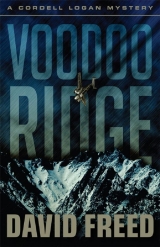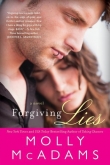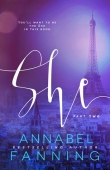
Текст книги "Voodoo Ridge"
Автор книги: David Freed
Жанр:
Триллеры
сообщить о нарушении
Текущая страница: 11 (всего у книги 17 страниц)
FIFTEEN
Mrs. Schmulowitz drove a banana yellow Shelby Mustang with an automatic transmission and a vanity plate that read, “BRISKET.” She had to sit on two volumes of the 1966 Encyclopedia Britannica to see over the steering wheel, but that didn’t stop her from racing down San Miguel Boulevard like she was trying to outrun the zombie apocalypse, garbed in some sort of weird, Annie Hall-like outfit.
We roared past Rancho Bonita’s majestic, Spanish-style county courthouse doing fifteen over the posted speed limit.
“You’re gonna really enjoy this painting class, bubby,” Mrs. Schmulowitz said.
“Assuming we get there alive,” I said, bracing myself against the dashboard.
She whipped a sharp left onto Vespucci Street and through the crosswalk, nearly creaming a pair of portly businessmen who literally had to leap for their lives.
“Will you look at that? A parking space, right in front of the rec center. This must be my lucky day.”
“Did you not see those guys, Mrs. Schmulowitz?”
“Did I see them? Of course, I saw them. I also saw they could definitely use some exercise. If public schools still had physical education, we wouldn’t have this problem! They can thank me later.”
The space was impossibly tight, sandwiched between a white Volvo sedan and a Chrysler PT Cruiser. Mrs. Schmulowitz parallel parked like one would expect a nearly ninety-year-old woman to parallel park. She played bumper cars, pounding her way in.
“Perfect,” she announced when we were wedged squarely against the curb. “C’mon, bubeleh let’s get you some culture.”
The weekly painting class was held on the second floor of the Rancho Bonita Parks and Recreation Department’s Vespucci Community Center, a stately, two-story red brick building that had once served as a convalescent hospital for wounded soldiers returning from the Great War. The classroom was filled with mostly elderly women, some tethered to oxygen tanks, others reliant on wheelchairs or walkers, all sitting around long tables, glumly slapping thin, wet paint on pieces of watercolor paper.
“Hello, good people,” Mrs. Schmulowitz announced as we walked in. “Welcome to Tuesday.”
Nobody bothered to look up.
The class instructor, who Mrs. Schmulowitz introduced me to as Meredith Crisp, touted the fact that he’d studied under the late Thomas Kinkade, America’s self-proclaimed “Painter of Light.” I didn’t know squat about fine art, but what I’d seen of Kinkade’s saccharine fairy tale villages convinced me that whatever artistic technique Crisp had to teach, I wasn’t interested in learning. Not that I had any illusions of becoming the next da Vinci. Far from it. I was only there to keep my landlady happy.
“I’m sorry, Mrs. Schmulowitz, he’s really not allowed in here,” Crisp said, taking her aside, glancing at me, and whispering a little too loudly with a catty smile that really wasn’t a smile. “This is a seniors-only class.”
“Who’s to know? The geriatric Gestapo? Lighten up, Meredith.”
“I’m sorry, Mrs. Schmulowitz. Those are the rules. I really didn’t make them up.”
He was well past sixty but trying hard not to look it. Flip-flops, too-tight jeans, a Coldplay T-shirt under a fringed leather vest, leather bracelets, a long, beaded earring dangling from one lobe, and purposefully mussed, Rod Stewart-like head of blond, thinning hair that was among the worst dye jobs I’d ever seen.
“I wouldn’t bother anybody,” I said.
“I’m not sure you understand.” Crisp rubbed a hand over his face in exasperation. “I already have thirty-three students in this class, which is ten more than what I was supposed to have. I simply don’t have enough supplies for everyone.”
“He can use some of my stuff. What’s the big deal?”
“The ‘big deal,’ Mrs. Schmulowitz, is that I’m afraid your friend will distract those of my students who are actually serious about their painting.”
“Serious about their painting? Listen, the only thing these relics are serious about is where they can get a good deal on adult diapers. Don’t be such a nudnik, Meredith. It’ll take years off your life.”
Crisp knew there was no use arguing with her. He exhaled melodramatically, said, “Fine,” and moved off to supervise his other students.
Mrs. Schmulowitz waited until he was out of earshot, then said, “So, I have a confession to make.”
Her confession was she’d wanted me to accompany her to class so that she could introduce me to one of her fellow students, a retired psychologist.
“He’s a real mensch, this guy. And, between you, me and the wall, about the only person in this class with a brain that still works. I thought he could help you get through what you’re dealing with,” she said, looking around, “only he isn’t here yet.”
I told her I appreciated her concern, but that I wasn’t inclined to spill my guts to a headshrinker, let alone one I didn’t know. She patted my cheek and said she understood.
“Just talk to the guy. Ten minutes. He doesn’t help you? Fine. Whatever. I tried.”
“OK, Mrs. Schmulowitz. For you? Ten minutes.”
The psychologist never showed up. For the next half hour or so, I sat with Mrs. Schmulowitz and tried to paint watercolor trees and mountains per Meredith Crisp’s direction while the instructor patrolled us, critiquing our work like he actually knew something about art.
“A rather avant-garde use of pigment,” Crisp said, assessing my artistic offering with his arms folded and the tip of one index finger tapping his pursed lips. “But I must say, the placement of your seagulls seems perhaps just a tad random.”
“Those aren’t seagulls. Those are splatters.”
“I see.”
I needed a break.
There was a wooden bench outside under a big leafy tree. I sat down, spread my arms across the back of the bench, and watched the world go by. The tree was a jacaranda—“jacks,” as the locals called them. They produced profusions of delicate, bell-shaped flowers that, for a few weeks in late spring, bathed Rancho Bonita in a violet-colored haze. Many residents condemned them as “messy.” They disliked jacks for their tendency to drop sticky blossoms on the freshly waxed Porsches and Benzes of the town’s moneyed minions. If for no other reason, they were among my favorite trees.
People came and went: office workers in business suits; tourists clutching guidebooks, with cameras slung around their necks. A shirtless dude of about twenty in grimy jeans, with tattoos covering his toothpick arms and scrawny chest, rolled up on his skateboard to ask if I had any spare change.
“I was about to ask you for some,” I said.
He rolled on without a word.
The sun felt good on my face. A middle-aged redhead strutted past me in stiletto boots, wearing too much makeup and some sort of gauzy, gypsy skirt-blouse combo. She gave me a little smile. I didn’t notice her, however, as much as I did what she was toting in her right hand: a big brown shopping bag from the Nordstrom department store over on California Street, in the swanky, open-air, Casa Grande mall.
Nordstrom.
My brain flashed back on Chad Lovejoy and what he’d mentioned after Savannah and I landed at the Tahoe airport. Wasn’t Nordstrom where he said his ex-girlfriend sold jewelry, the one he maintained an open dialogue with? What did he say her name was? It took me a few seconds to remember: Cherry.
The mall was two blocks to the west. I walked it.
* * *
I’d never been inside the Nordstrom in downtown Rancho Bonita. Or any Nordstrom, for that matter. When fashion and wardrobe are as personally relevant to you as the weather on Venus or who wins the annual World Adult Kickball Association championship, you tend not to do your clothes shopping at such places. Like I said, Sears is more my speed. Only I wasn’t shopping.
If platinum smelled, Nordstrom would be what it smelled like – clean and ridiculously expensive. No less than three fresh-scrubbed young sales clerks wished me good morning and asked pleasantly if there was anything they could help me find as I made my way to the first-floor jewelry department.
“Can I help you find something special?”
Late twenties. Blond. Prematurely balding. Wire-frame glasses. Decked out in slacks, suit vest, white dress shirt, a gold tie. He was standing behind a glass display case filled with glittery baubles that I’d never afford.
“Cherry around?”
“She’s on her break.”
“Any idea when she’s due back?”
The clerk checked his oversized divers’ watch.
“Should be back any time. Is there something I can do for you? We have a really nice selection of brooches that just came in I’d be happy to show you.”
“That’s OK. I’ll wait.”
The women’s shoe department was next door. I sat. Mercifully, nobody asked me if I wanted to try on any pumps or anything. I noted an inordinate number of shoppers who were dressed up. That was the difference between Nordstrom and Sears. That and the power tools.
A couple of minutes passed before a round-faced, dark-complected young woman with streaked auburn tresses walked past me to where the clerk in the suit vest was standing behind the display case. She was wearing a black skirt, black ankle boots, and a blousy, zebra-striped top. She and the clerk conferred quietly. He pointed me out and she came over, smiling.
“Hi. Can I help you?”
“Cherry, right?”
“Right.” She pushed her hair behind her ear. I noticed a tattoo on the inside of her right wrist. In stylish, cursive script, it said, “Baby.”
“My name’s Logan. I wondered if I could ask you a couple of questions about your former boyfriend.”
“Which one?”
“Chad.”
Her friendly expression disappeared. I could see pain behind her dark eyes.
“I’m assuming you heard what happened to him?”
“I heard. You a cop?”
“No.”
“Well, I’m sorry,” Cherry said, starting to go around me, “but if you’re not the police, I really don’t think I should be talking to you.”
“I was there when they found him.”
She stopped and looked back at me.
“You saw him?”
I nodded.
“Did he look really bad?”
“No.”
She seemed relieved.
“Chad told me the two of you used to confide in each other, even after you split.”
“He was my soul mate,” Cherry said, her chin beginning to quiver. “We just didn’t get along sometimes, that’s all.”
“I’m trying to find who killed him.”
“What do you care? You said you’re not a cop.”
“Whoever shot Chad also may have kidnapped someone very close to me. He may be holding her hostage.”
She waited until a couple of tall, slim young women in long, flower-print dresses strolled past, each carrying several shopping bags. They were debating the proper pronunciation of foie gras.
“Chad was so great.” Cherry’s eyes glistened. She looked away, wistfully. “We loved each other so much.”
“Who do you think might’ve wanted him dead, Cherry?”
“I don’t know.”
“Who do you think does?”
She shrugged. “His mom, I’m pretty sure.”
“What makes you think that?”
“When she called to tell me what happened, she said she had her suspicions.”
“She tell you what those were?”
“Only thing she said was that she was afraid the guy might come after her if he knew she was pointing fingers.”
“Where can I find her?”
“I’m not going to get in trouble, am I?”
“No.”
Cherry searched my eyes. “I don’t know why,” she said, “but for whatever reason, I believe you.”
* * *
Chad’s mother, Sissy Barbieri, lived in the bedroom community of Thousand Oaks, north of Los Angeles. Why they call it Thousand Oaks is beyond me, considering that most of those one thousand trees appear to have been cut down long ago. What isn’t in short supply in Thousand Oaks are expensive cars and block after block of perfectly manicured lawns surrounding perfectly immaculate, Spanish-themed minimansions. The Stepford Wives would fit right in.
The closest airport to Thousand Oaks was in Camarillo, about thirteen miles away. Flying the Duck wouldn’t have worked, especially with the plane’s electrical problems that Larry had yet to diagnose. So I drove instead down the 101 freeway in my truck.
The address Cherry had given me was on Silver Oaks Drive, which was clearly among one of Thousand Oak’s lesser enclaves – modest, single-story ranch-style homes wedged close beside each other on a stretch of bleak, sun-baked real estate a block off the noisy freeway. Sissy’s house was noteworthy only for its especially decrepit appearance. Paint was peeling off the siding. A rain gutter hung from over the porch like a hiker clinging to a cliff. A weight bench and bar bells sat rusting on the scrum of devil grass and other weeds that passed for a front yard.
I parked as a matter of practice three houses down the street – far enough away to maintain the element of surprise, yet close enough to get to my truck if I had to in a hurry – walked in, and pressed the bell.
No answer. No sound of a bell ringing inside. I tried the steel-grated storm door. It was unlocked. I opened it and knocked on the front door. A dog began barking crazily inside the house – a small dog, by the sound of it. A few seconds passed, then the door opened, revealing a woman in a maroon, terrycloth bathrobe clutching the nub of a cigarette in the fingers of her right hand. Mid-forties, five foot five, 160 pounds. Her dirty blonde hair was shoulder-length, uncombed and unwashed. Deep sallow creases rimmed blue eyes. She planted her left hand on her hip and shifted her weight, a purposeful move that parted the top of her robe and allowed me a better peak at her pendulous, untethered breasts. You could tell she’d once been beautiful. All she was now was hard.
“Tofu, no!” She turned to yell at a trembling, goggle-eyed Chihuahua barking and snarling at me. Then she looked back at me. “What happened to the regular guy?”
“Pardon?”
“The regular guy? From the dispensary?”
I looked at her blankly.
“I ordered half an ounce of Super Lemon Haze. It was supposed to be here two hours ago. What is wrong with you people? Your ad says same-day delivery. Do you know how long I’ve been sitting around, waiting for my medicine?”
“I’m not from a medical marijuana dispensary.”
“You’re not?”
“No.”
Her shoulders sagged. “Well, do you have any weed on you?”
“Are you Sissy Barbieri?”
She took a drag on her cigarette, eyeing me with sudden suspicion.
“Who’s asking?”
“My name’s Logan. I was there when they found your son, Chad.”
Her demeanor softened instantly.
“You were there?”
I nodded.
“My baby didn’t deserve to die the way he did,” Chad’s mother said.
“I know this isn’t easy, Sissy, but I’d like to come in and ask you a few questions about him.”
“What kind of questions?”
“Ones that could help bring whoever killed him to justice.”
“You a cop?”
“No.”
“Then who are you?”
I told her. She asked to see my driver’s license.
“You live in Rancho Bonita?” she said, studying it.
“I do.”
“You’re not a rapist or anything like that, are you?”
“No.”
She eyed me, debating my trustworthiness, then handed me back my license and stepped aside. I thanked her for taking the time and walked in.
Barking and snarling, Tofu the Chihuahua held her ground on beige carpet that could’ve used a steam cleaning, until I reached down to pet her. She flopped over on her back, trembling, legs in the air, and I scratched her tummy. Suddenly, we were BFFs.
Sissy grabbed a quart bottle of Early Times bourbon off a glass-top coffee table and held it up with her eyebrows raised as if to offer me a hit.
“No, thanks.”
“You won’t mind if I do?”
“Hey, it’s five o’clock somewhere.”
She filled an orange plastic cup with whiskey and lowered herself onto a sagging, zebra-print sofa, tucking her bare feet underneath her robe. I sat down opposite her on a love seat that matched the sofa. Hanging on the wall behind her was a large oil painting of Paris flanked on either side by framed black-and-white photographs of wild horses running across the Desert Southwest.
“So,” she said, “what was it you wanted to ask me about Chad?”
“I understand you may have some insights into who shot him.”
Sissy stubbed out her cigarette in a frog-shaped ashtray overflowing with butts and fired up another one with a red Bic lighter sitting on the coffee table, next to a glass bong. She inhaled deeply, turned her head, expelled the smoke over her left shoulder, and sat back again, massaging her lower face.
“Who told you that?”
“I’d rather not say.”
“It was Chad’s girlfriend, wasn’t it? That little bitch.”
I didn’t say anything.
“She’s making shit up. We never talked about anything like that.”
“You’re scared, Sissy. I can see it in your face.”
“I do not know what you’re talking about.”
“You’re lying, Sissy. You’ve stopped looking at me. You’re covering your mouth, scratching your nose. You just placed that bourbon bottle between you and me like a barrier. All of that tells me that you’re being guarded. What are you guarding, Sissy?”
“Who are you?”
“That doesn’t matter. What matters is that you help me find who killed Chad before he kills somebody else.”
Tears began to stream down her cheeks.
“You don’t understand,” she said.
“What don’t I understand?”
She shook her head no and wiped her nose with the back of her right hand.
“I do understand, Sissy. I understand that this is your son we’re talking about. I also know you don’t want anybody else to die the way Chad did. No mother would want that.”
She began to weep, rocking and wailing uncontrollably, covering her eyes.
I got up, gently took the cigarette from her hand, and set it down in the ashtray. I told her I was sorry for having upset her. I was patting her back, trying to console her and get her to talk to me.
That’s when the front door flew open and a stout man burst in, armed with a skinning knife.
SIXTEEN
He came at me growling, teeth clenched. Five foot ten, 220 pounds, early forties, grizzled red beard, blue do-rag on his head, jeans, Harley T-shirt, heavily tattooed arms, a biker’s keychain, black leather motorcycle boots. Frankly, I was focused more at that moment on his weapon of choice – a ten-inch hunting knife with a curved blade and stag horn handle – than on who he was or why he seemed bent on slicing me like deli ham. What I needed was a weapon of my own, and I had about two seconds to find one.
The first rule of unarmed combat is never be unarmed. Hollywood would have you believe that a body trained in martial arts, ala Bruce Lee, is itself a lethal weapon. Unfortunately, martial arts are rarely, truly effective in stopping an armed assailant beyond the confines of a film studio lot, and only when the cameras are rolling.
Table lamps are a much better bet.
The one on Sissy Barbieri’s end table was made of frosted glass and shaped like an electric guitar, the body of which lit up when turned on. I grabbed it by its neck and swung, connecting with my attacker’s center mass like a batter chasing a fastball. Pieces of lamp flew, along with the knife, as he flopped head first into the coffee table.
“What are you doing?” Sissy screamed. “He’s my boyfriend!”
She pushed past me and knelt beside him, trying frantically to revive him.
“Russell, wake up! Oh, my god, wake up, baby, please!” She looked up at me, seething. “He was only trying to protect me. You didn’t have to hurt him!”
I turned him on his back, checking his carotid pulse, which was strong. Aside from a good-sized cut on his right cheekbone where he impacted the coffee table, I could see no other injuries.
“He’s not moving.”
“Do you have a washcloth?”
“He’s dead! Can’t you see that?”
“He’s not dead, Sissy.”
“Russell, wake up!”
“He’ll wake up when he’s ready. Now, go get a washcloth. Please.”
“What for?”
“For his cheek. Unless you want him bleeding all over your carpet.”
Reluctant to leave his side, Sissy got off her knees, wiping away tears, and made her way to the bathroom.
Russell groaned and held his head.
“What the hell happened?”
“You got a guitar lesson. Let’s get you sitting up. It’ll slow that bleeding.”
I hoisted him off the floor and over to the couch.
Russell looked over at me woozily, head wobbling. “Who are you?”
“I’m looking for the guy who killed your girlfriend’s son. He also kidnapped my girlfriend.”
“Cool.”
Sissy returned with a damp washcloth and sat down beside him. She asked him if he wanted to go to the hospital. He shook his head no.
“Why’d you try to stab me?”
“I thought you were him,” Russell said.
“Who’s that?”
“Chad’s friend,” Sissy said, holding the washcloth to Russell’s cheek, “if that’s what you want to call him.”
As she explained it, Chad’s “friend” had called the day after Chad’s body was found. He told her that he’d done state time with Chad, and that the two of them, along with unnamed others, had become involved in some sort of impromptu business venture that had gone terribly wrong.
“The guy told me the police would be asking questions – who Chad knew, who he hung out with,” Sissy said. “He said the best thing I could do for my own good is to say I didn’t know anything. He said he knew where I lived cuz my son told him. He said he’d be checking up on me to make sure I played it smart and kept my mouth shut.”
“So you go and let some dude you don’t know inside the house?” Russell said to her accusingly, gesturing toward me. “That wasn’t playing it smart, Sissy. That was plain stupid.”
Put off by his remark, she grabbed his right hand and made him hold the washcloth to his cheek himself. “It wasn’t stupid, Russell. I knew it wasn’t the guy.”
“How’d you know I wasn’t the guy?” I said.
Sissy stood and began picking up pieces of the electric guitar lamp, depositing them on the love seat.
“Because you don’t sound like him,” she said.
“What did he sound like?”
“Like he wasn’t from here.”
“He had an accent?”
She nodded.
“What kind of accent?”
“I don’t know. England or somewhere.”
“Could he have been Australian?”
“Maybe. Who knows?”
“Foreigners,” Russell said. “They’re all assholes.”
I asked Sissy if her son had any friends from Australia.
“If he did, he never said nothing to me about it.” She reached over, still on her knees, and gulped down some bourbon. “Not that he told me anything after awhile. My mother told him I was a bad mother. She had him convinced I was the reason for every shitty little thing that went wrong in his life. Who knows? Maybe she was right.”
“You got skills, baby,” Russell said, “but mothering ain’t exactly one of ’em.”
“You go to hell, Russell.”
Sissy got off her knees, stormed down a hallway, and slammed a door behind her.
Russell looked at me like he couldn’t understand why she was upset.
“How’s your head?” I said.
“I’ll live.”
I checked his pupils. He seemed OK.
“Sorry about the knife, man. I saw you through the window and I got scared, that’s all.”
“No worries.” I walked over, snatched his knife off of the floor, and handed it to him, hilt first. “Sorry if I scared you.”
“Picked this bad boy up at the flea market in Pasadena,” Russell said, stashing the blade in his left boot. “I know the guy who sells ’em, if you’re interested.”
“Thanks. I’ll keep it in mind.”
As I walked toward the door, he said, “Listen, you didn’t get this from me. OK?”
* * *
What I “didn’t get” from Russell was the name, telephone number and last known address of Jethro Murtha, a convicted armed robber and Chad Lovejoy’s cellmate at the California Institution for Men at Chino. To celebrate the two of them both being paroled, Chad invited Murtha home to his mother’s house in Thousand Oaks, where he introduced Murtha as his best friend. The two ex-cons sat in the backyard that night working on a case of Budweiser and debating the most efficient ways to knock off banks.
“If anybody on this earth knows anything about what happened to Chad up there,” Russell said before I left, “it’s Jethro Murtha. Just watch your ass. He struck me as dangerous.”
“I’ll keep it in mind. Thanks for the help.”
The address he gave me correlated to an apartment tucked above the A-1 Super Fine Discount Golf Shop on Olympic Boulevard, in the densely packed, Mid-Wilshire neighborhood of Los Angeles known as Koreatown. Two open-air flights of stairs adjacent to the shop led from the boulevard to the second floor. I parked at a meter on the street, walked up, and knocked on the door. There was no answer. It was 4:10 P.M. Assuming Murtha still lived there and held down a day job, I figured him to be home shortly after five.
I’d wait.
In the golf shop below, a clerk in beige golf shorts with long dark hair, lively eyes and a name tag in Korean pinned to her fuchsia-colored Callaway golf shirt, tried to sell me a $350 titanium putter, the head of which was only slightly smaller than a land-mine detector.
“The stainless steel head has a thicker face and top line,” she said in an accent that was more Sherman Oaks than Seoul, “so the feel is a lot more solid when you make contact with the ball. It’ll take three strokes off your game, guaranteed.”
I took the club if only to humor her and made a few practice putts while keeping an eye on the street.
“Sole weights at the heel and toe,” she said, “so you can change the head weight however you like. Sweet, right?”
“Very.” I handed her back the putter.
“I’ll make you a great deal. Even throw in a free cover, because if you take care of your putter, it’ll take care of you.” She smiled, her tongue flicking the side of her mouth provocatively.
“I don’t play golf.”
“Just learning?”
“No. Actually, golf seems like a giant waste of time to me.”
She looked at me funny. “But this a golf shop.”
“So it would appear.”
“Why come in if you don’t play golf?”
“I’m waiting for the guy who lives upstairs to come home. His name’s Jethro Murtha. You wouldn’t happen to know him, would you?”
The clerk thought hard for a second. “Big dude. Kinda angry all the time. Got these little tats…” She tapped her left cheekbone.
“Teardrops?”
The clerk nodded.
“You a cop?”
“Do I look like a cop?”
“Pretty much, yeah.”
I thanked her for her time and told her I’d definitely be back if I ever got into the game of golf. We both knew that would be never.
There was a donut place two doors to the west, past a dry cleaners and a cash-only dental office. The lady behind the counter was friendly in a minimum-wage kind of way. She wore a hairnet. I ordered a plain cake donut and a small coffee.
When I returned to my truck, there was a parking ticket under the left windshield wiper. Expired meter: sixty-three dollar fine.
“Proud to be an American.”
I stuffed the ticket in my jeans, wolfed down my donut, transferred what change I had in my pocket into the meter, and tried hard not to think about Savannah as I sat behind the wheel, watching the approaches to Murtha’s apartment. I checked my phone for any calls I might have missed, but there were none.
At 5:20, an orange and silver MTA bus rumbled by and pulled into the stop up the block. Two Asian girls stepped off, giggling teenagers, followed by an older Asian woman, and a hulking construction worker of about thirty-five with a shaved head and a tool belt slung over his shoulder. He walked past my truck with tired, downturned eyes. He was lugging a plastic bag filled with groceries. The teardrops tattooed above both of his cheekbones were easy to spot.
I got out and fell in behind him.
“Jethro, you got a second?”
He glanced over his shoulder at me, dropped his groceries, and bolted.
In my prime, I would’ve caught him easily. Not even broken a sweat. But the years can rob a man of speed, along with his desire to achieve it. I stopped and watched him grow smaller as he fled down the sidewalk, glancing back at me periodically, his billiard ball head bobbing above a sea of Asian pedestrians along Olympic Boulevard.
I picked up the bag he’d jettisoned and looked inside: a box of Froot Loops, a dozen dinner rolls, two cans of tomato soup, and a plastic jug of cheap, off-brand vodka.
Jethro would be back for the booze. I was pretty sure of that.
* * *
I left his groceries, less the vodka, in the bag outside his door above the golf shop, parked my truck in a twelve-dollar-a-day lot two blocks away, and established an observation post inside a KFC almost directly across the boulevard from his apartment. Nobody would question my presence or kick me out as long as I was a paying customer, so I ordered a bucket of original recipe chicken and a soda with free refills. I was gnawing four hours later on a thigh, floating in a somewhat uncomfortable ether of salt, processed sugar, and saturated fat, when the ex-con I was eager to speak with came home.
He approached his apartment with an almost vaudevillian wariness, slowly looking this way and that, like a big cat slinking toward a watering hole, before cautiously ascending the stairs to his apartment. The top of the stairs was obscured from my vantage point at the KFC, but I knew that he’d gone inside because interior lights came on behind the shades in the two small windows over the golf shop.
I waited about fifteen minutes for him to settle in, wiped the grease from my mouth and hands on a half-dozen moist KFC towelettes, fetched Murtha’s jug of vodka from my truck, and returned to his apartment.
The grocery bag I’d left on his stoop was gone. Either he’d taken it inside when he’d returned home, or someone had stolen it. I climbed the stairs slowly, quietly, my eyes trained on the door above me, pausing every few seconds to listen. Amid the urban cacophony of cars, jetliners, and the faint, sing-song strains of people conversing in Korean, I could make out twangy country music coming from Murtha’s place – Merle Haggard’s “Okie From Muskogee.”
I rapped my knuckles on the door, careful to stand well to the side, lest I be greeted with a shotgun blast.
The tune inside stopped. The windows went dark.
I waited, then knocked once more.
No answer.
“If I were a cop, Jethro, do you really think I would’ve picked up your groceries and left them for you?”
Silence.
“I just want to talk,” I said.
Five seconds passed.
“About what?” came a voice from the other side of the door.
“Chad Lovejoy.”
“I don’t know no Chad Lovejoy.”
“You know that vodka you bought?”
“Wouldn’t know nothing about that, either.”
“Good. Then I guess I’ll have to drink it myself.”
More silence. Then the door opened with the security chain in place. Murtha eyed me up and down through the crack. He spied the jug of vodka in my hand.








